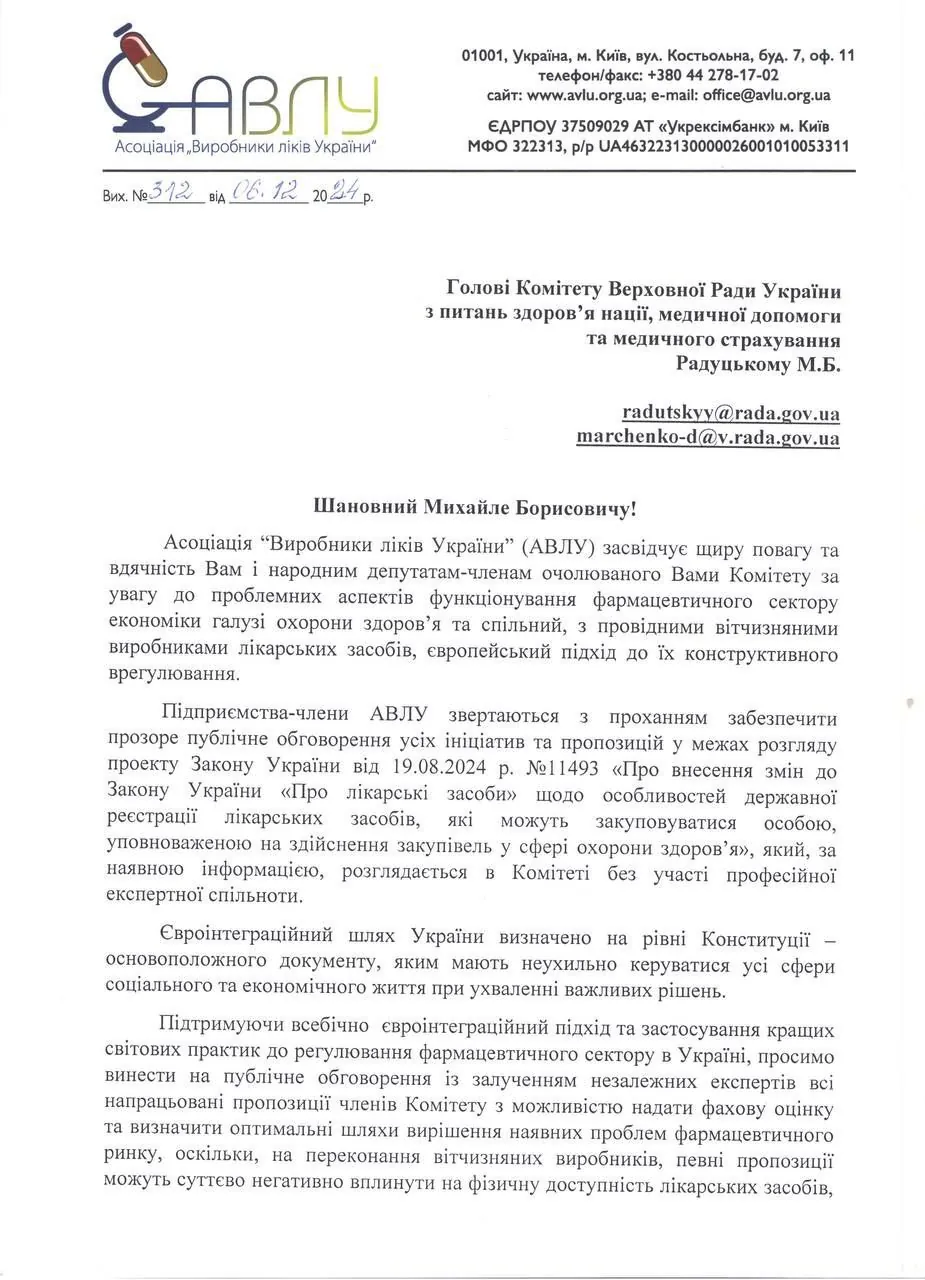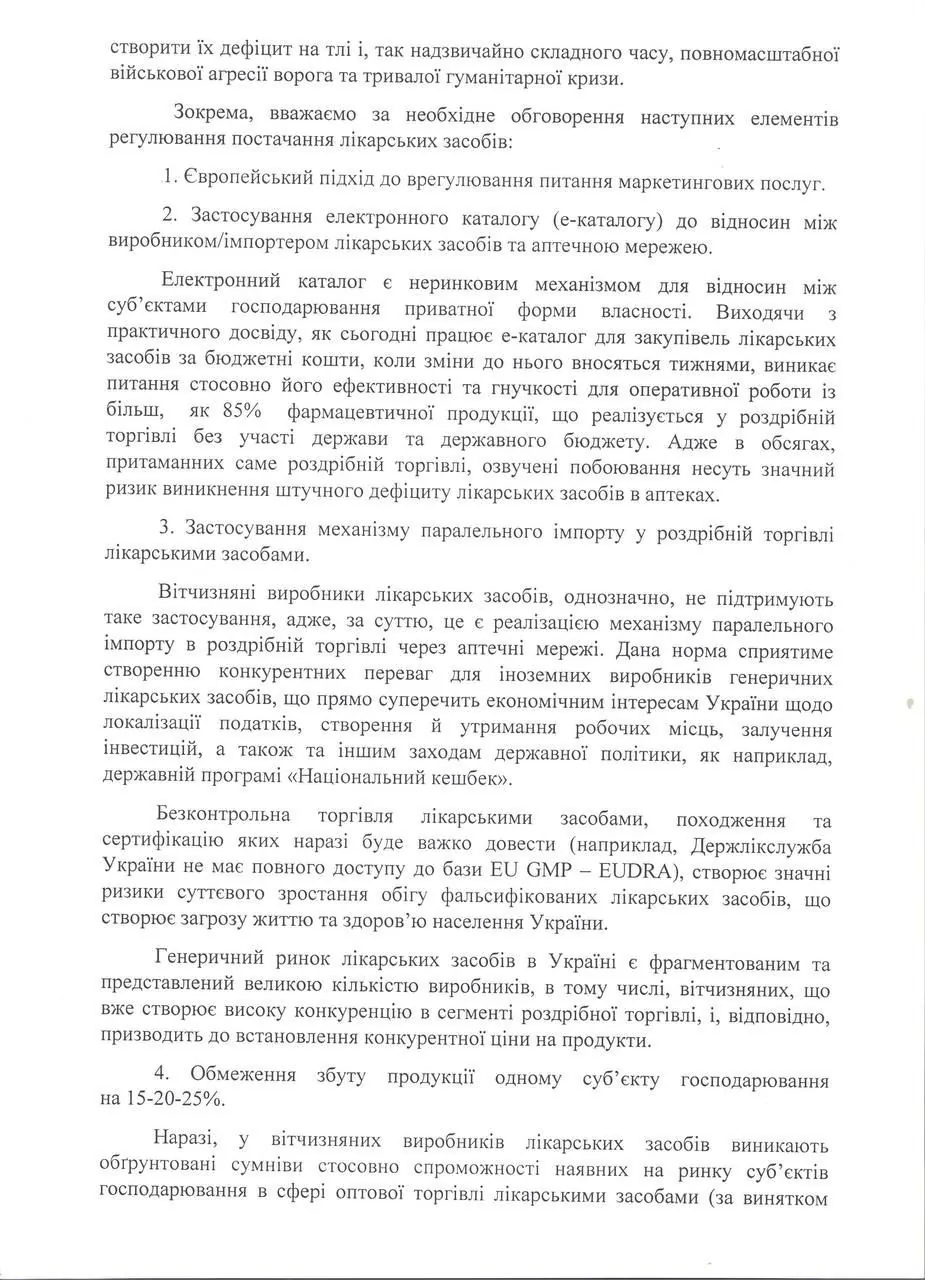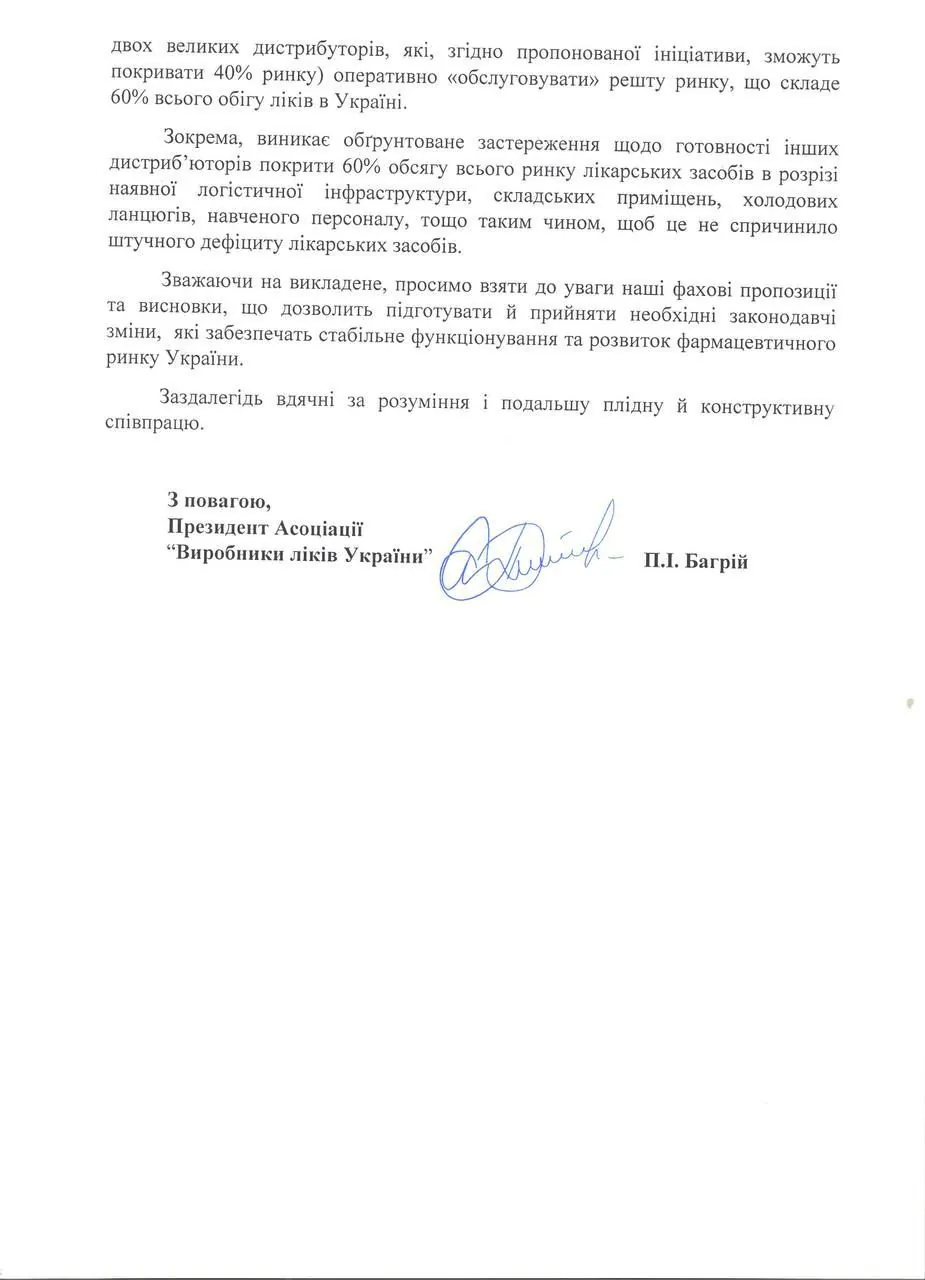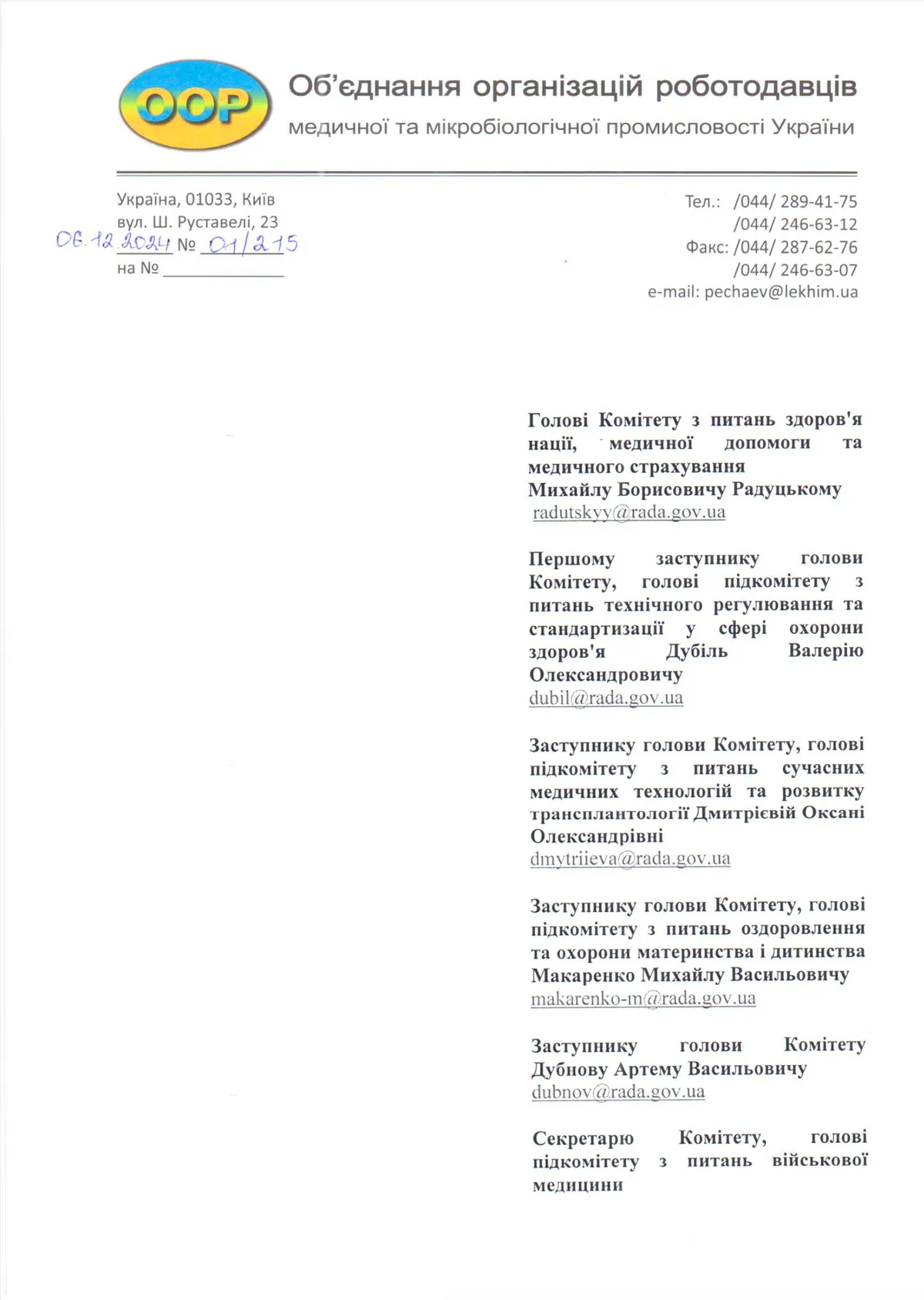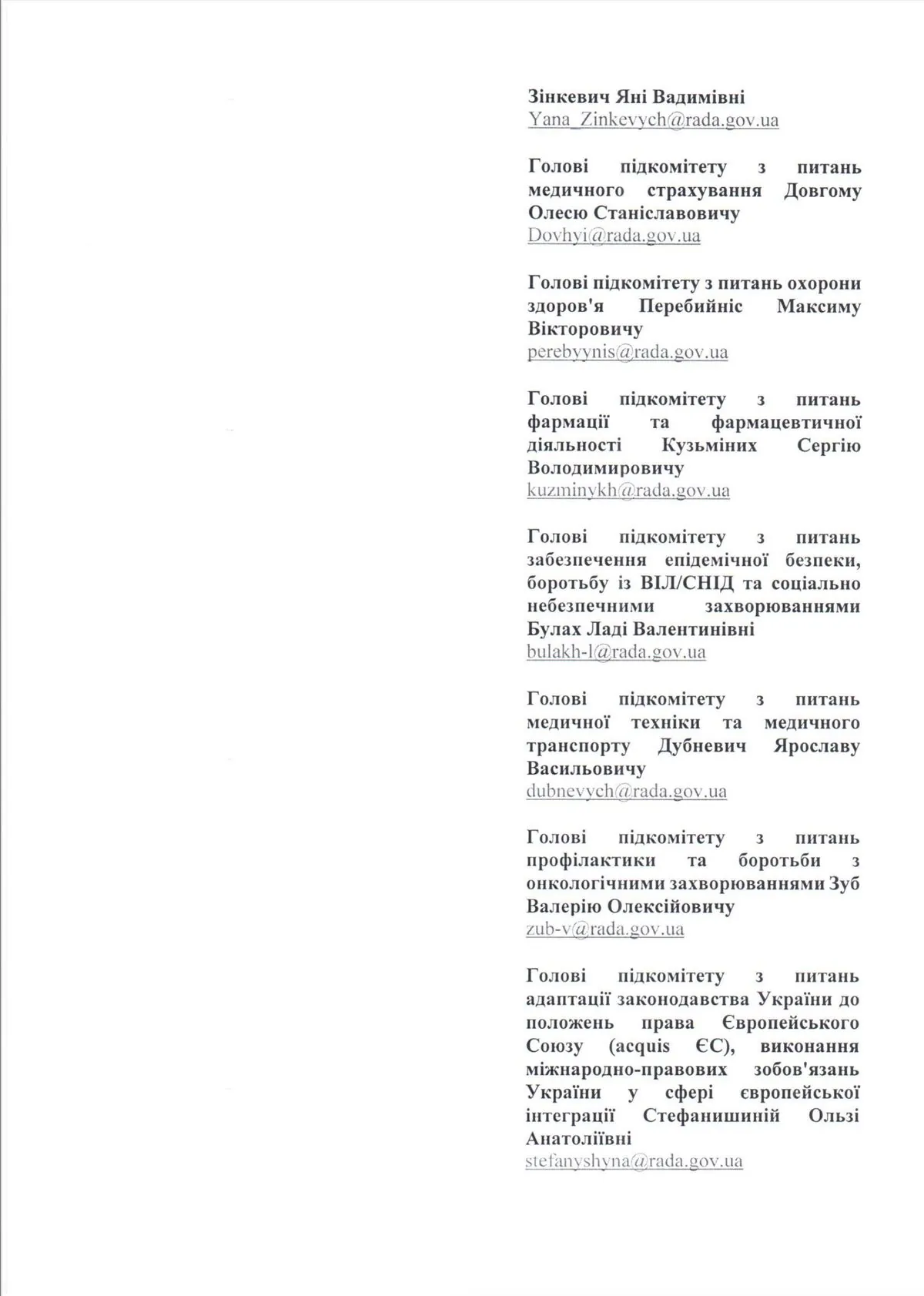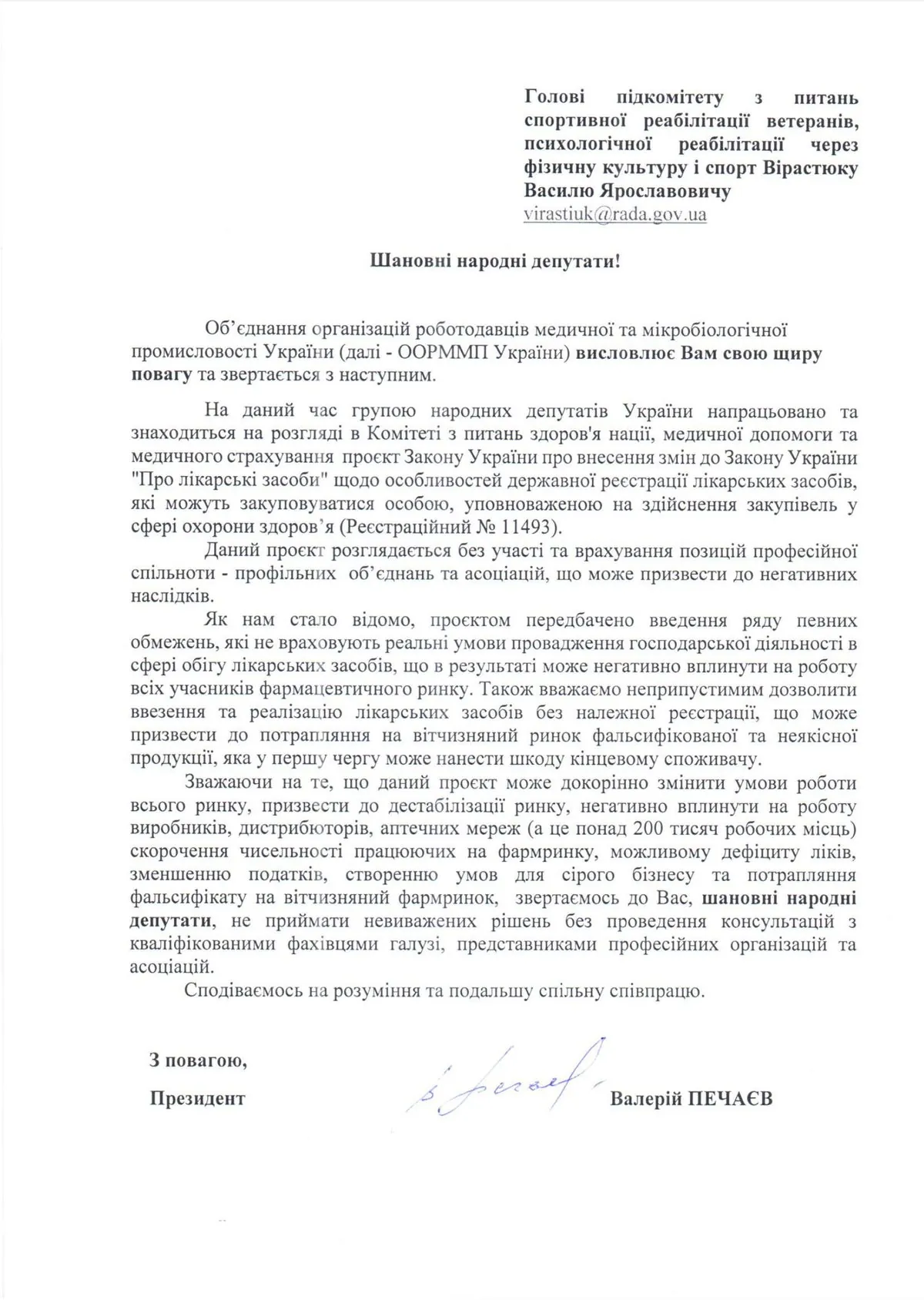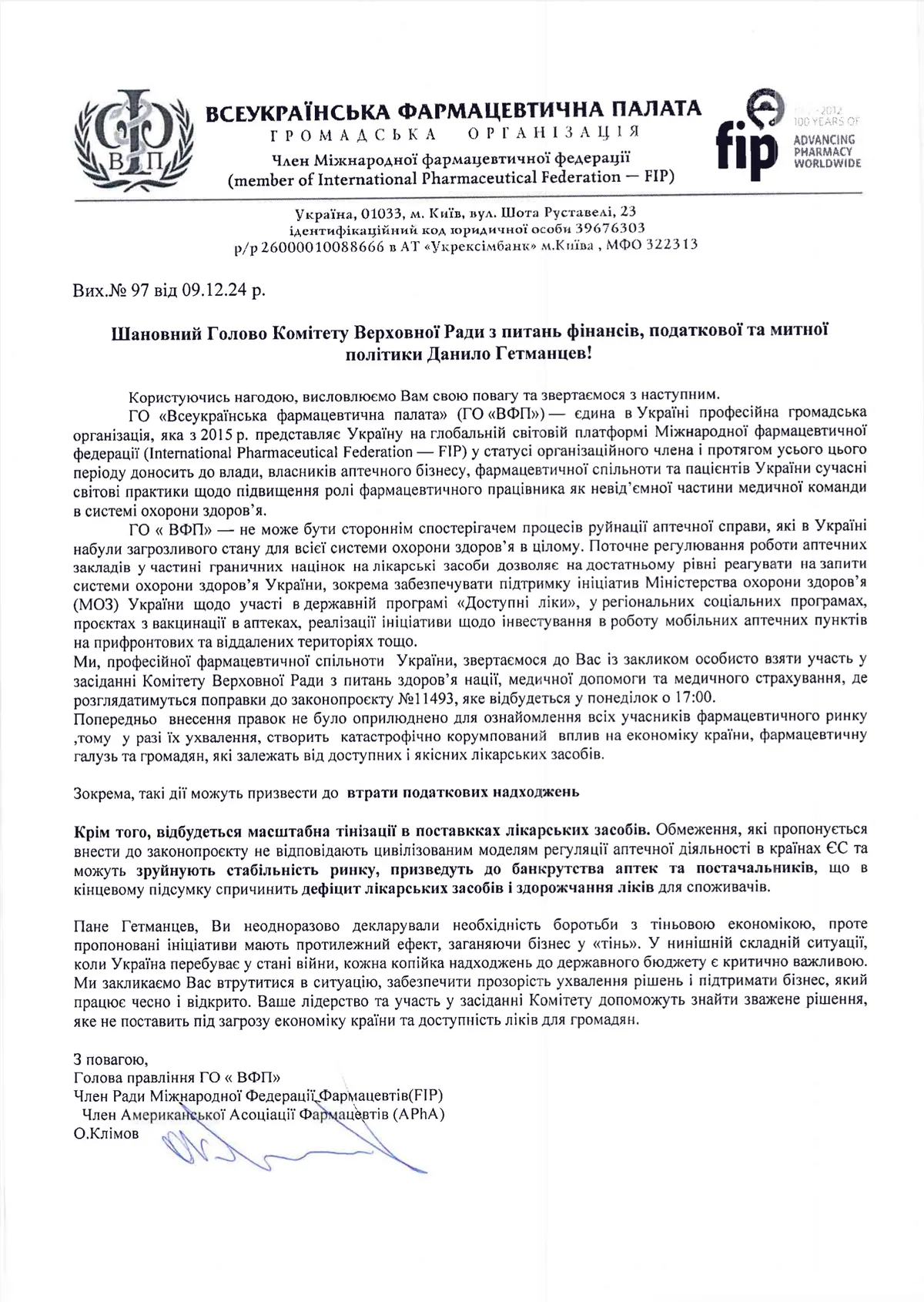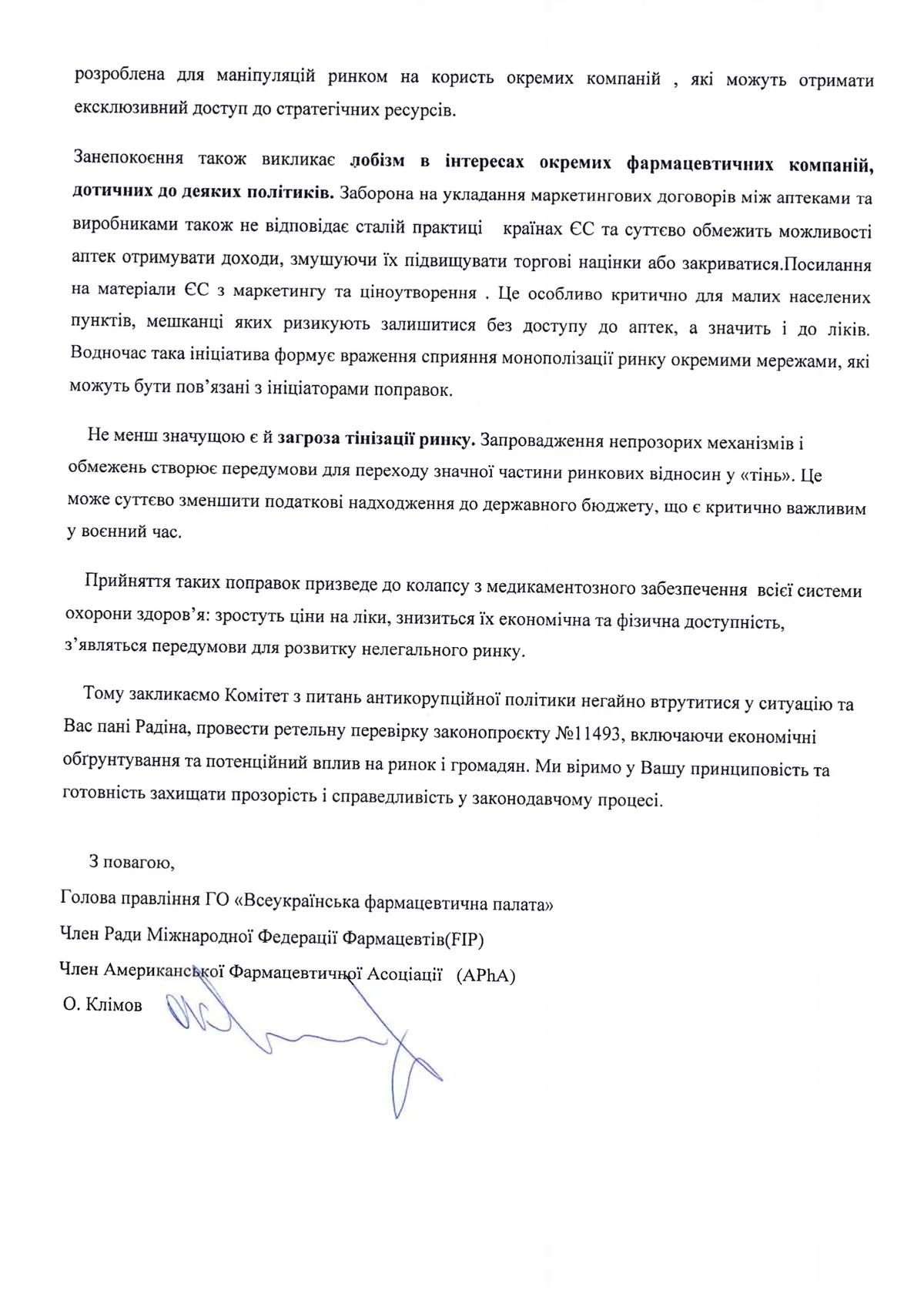Pharmaceutical Market Participants Against Scandalous Amendments to the Draft Law That Will Increase the Cost of Medicines: Industry Raises the Alarm
Kyiv • UNN
Pharmaceutical market participants opposed amendments to the draft law No. 11493, which provide for quotas for the supply of medicines and the abolition of discounts for pharmacies. Experts warn of the risks of higher prices for medicines and shortages.

Pharmaceutical market participants have actively opposed the controversial amendments to the draft law No. 11493 on quota quotas for the supply of medicines and the abolition of discounts for pharmacies. They warned of significant negative consequences for the pharmaceutical industry and society as a whole: worsening of the availability of medicines and their significant rise in price. UNN analyzed why this happened and how catastrophic the consequences could be.
At the end of November, the Verkhovna Rada adopted draft law No. 11493 on amendments to the law of Ukraine "on medicines"as a basis. Its primary goal is to simplify the registration of medicines for centralized procurement. However, the changes that are planned to be made for the Second Reading have caused significant concern among pharmacists and specialized associations.
What exactly is being proposed to change:
- set a limit on the volume of purchases of drugs by one distributor in the amount of no more than 15% of the total volume;
- create a unified state electronic catalog for managing trade margins and mandatory inclusion of all drugs in it;
- set quotas for the supply of medicines with special conditions;
- prohibit retail businesses from receiving discounts from manufacturers or suppliers of medicines, meaning pharmacies will no longer be able to give discounts on medicines, including to socially vulnerable segments of the population.
Relevant associations actively opposed the innovations and ask not to make a decision that may affect the physical availability of medicines up to the risk of a shortage.
Industry experts point out that applying the e-catalog to the relationship between the manufacturer/importer of medicines and the pharmacy chain will create additional bureaucracy and may cause delays in the supply of medicines.
"The electronic catalog is a non-market mechanism for relations between private business entities. Based on practical experience, how the e-catalog for purchasing medicines for budget funds works today, when changes are made to it for weeks, manufacturers have a question of its effectiveness and flexibility for operational work with more than 85% of pharmaceutical products sold in retail trade without the participation of the state and the state budget," the Association "Manufacturers of medicines of Ukraine"noted .
The proposal to limit the sale of products to one business entity to 15% raises concerns that pharmacies will not be able to receive a sufficient supply of medicines, as a result of which buyers will face an artificial shortage of medicines. Thus, chronically ill patients will be forced to seek the necessary medicines in other localities, which will make it difficult to access life-saving medicines, especially in frontline areas.
Quotas for the supply of critical medicines, without taking into account the specifics of the existing distribution system, will also lead to disruption of supply chains and, consequently, limited access to medicines.
"As we have learned, the draft provides for the introduction of a number of certain restrictions that do not take into account the real conditions of economic activity in the sphere of circulation of medicines, which as a result may negatively affect the work of all participants in the pharmaceutical market. We also consider it unacceptable to allow the import and sale of medicines without proper registration, which may lead to the entry into the domestic market of counterfeit and low - quality products, which may primarily harm the end user," the Association of employers ' organizations of the medical and microbiological industry of Ukraine noted in its appeal to the committee.
At the same time, the public organization "All-Ukrainian pharmaceutical Chamber" stated that the process of preparing these changes may have signs of a corruption component aimed at lobbying the interests of individual pharmaceutical players. And the amendments to the bill themselves, in their opinion, will lead to a loss of tax revenues and large-scale shadowing in the supply of medicines.
At a meeting on December 9, the Committee on national health planned to consider scandalous amendments to the draft law No. 11493, but due to the active position of pharmaceutical market participants, this issue was postponed. However, pharmaceutical market participants fear that the consideration of the changes was postponed intentionally in order to "extend" them, when the indignation of the professional community subsides a little and there is no time for a comprehensive discussion. According to the agency's interlocutors, the review was postponed to December 19 and, possibly, the committee will be held in the morning, and then the amendments to the law will be sent directly to the Verkhovna Rada Hall and voted on the same day.
At this stage, it is important that deputies hear industry representatives and take into account their expert opinion. After all, ill-considered changes risk becoming expensive not only for business, but also for the whole society. If a constructive dialogue between the parties is not established, the consequences may affect every Ukrainian - due to the loss of jobs, the rise in the price of medicines and the mass turnover of counterfeit products that are dangerous to life and health.
